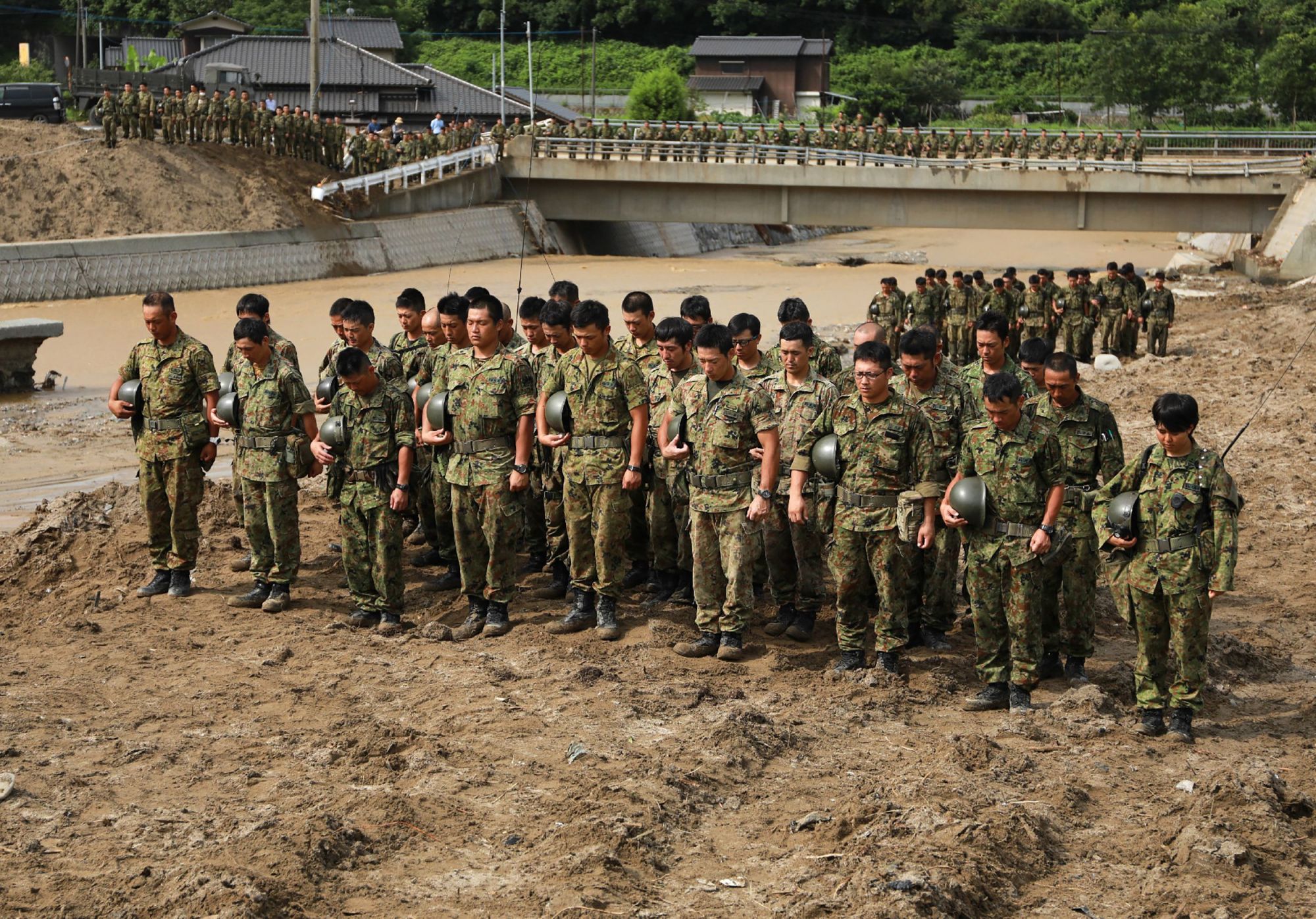Prime Minister Shinzo Abe is in the throes of a political emergency due to the thrashing he and his Liberal Democratic Party endured in the recent Tokyo elections. He is now in damage-control mode, but it will take something huge to distract voters from the malodorous cloud of scandals that clings to Abe and his cronies. Given his long record of broken promises and unrealized goals, collective amnesia is his best bet for regaining voters' trust.
Abe's nightmare scenario is his being bundled out of power before he can achieve his long-standing dream of revising the Constitution. The sudden implosion in Abe's popularity has significant consequences for his agenda of constitutional revision, because with the tide turning against him, it will be extremely difficult to win the required majority in a national referendum needed for any revision to pass. He may be able to muster the two-thirds support in both houses of the Diet to trigger that vote, but without winning the referendum itself, it will be all for naught.
Abe is a man in a hurry, having instructed colleagues in the LDP to come up with proposals for revising Japan's 1947 Constitution by the end of the year with a 2020 deadline for enacting revisions, but now he faces internal resistance. In May, he told the Yomiuri Shimbun that he favored adding a clause to war-renouncing Article 9 specifying that the nation's Self-Defense Forces are constitutional, and a revision to make higher education free. But in the past, Abe has made no secret of greater ambitions to overhaul the Constitution that involve reducing civil liberties and increasing duties and obligations in ways that he believes reflect Japanese traditions and values. Fundamentally, Abe views the 1947 Constitution as an alien document written by Americans and imposed on Japan, and as such a humiliating reminder of defeat in war and subsequent subordination.



